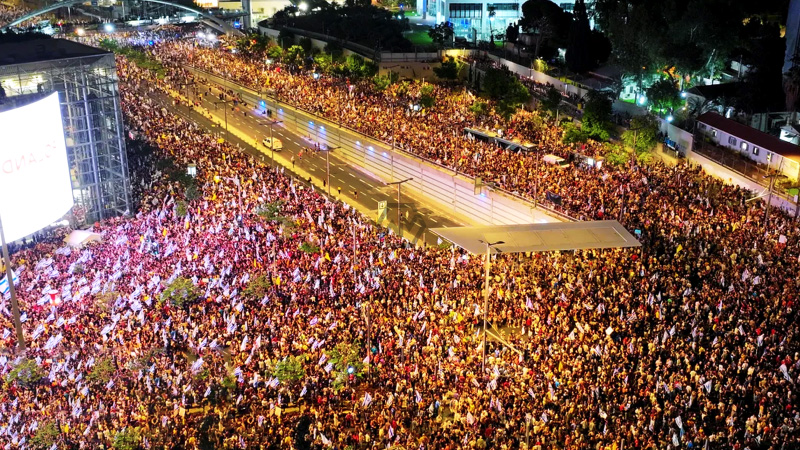- Histadrut, Israel’s largest trade union, has launched a nationwide general strike.
- The strike, triggered by the recent discovery of six murdered hostages, aims to pressure the government into action.
- Major disruptions are expected, including the closure of schools, government offices, and Ben Gurion Airport.
Israel is experiencing its first nationwide general strike since the Hamas attacks on October 7, driven by widespread anger over the government’s handling of hostage negotiations.
The move comes after the tragic discovery of six hostages’ bodies, which has intensified public frustration. Many Israelis took to the streets in protest, demanding immediate action from the government.
Israeli Strike Unfolds Amid Growing Anger Over Hostage Deaths and Government Inaction
The nationwide strike in Israel marks a historic and unprecedented response to the government’s handling of the ongoing conflict with Hamas. Triggered by the recent discovery of six hostages’ bodies, the strike was called by Histadrut, Israel’s largest trade union, to push for urgent governmental action. This disruption affects major sectors including education, public services, and transportation, signaling widespread discontent.
Protests erupted across the country, with thousands of Israelis taking to the streets to voice their frustration. The anger centers on allegations that Prime Minister Benjamin Netanyahu’s administration has stalled on critical ceasefire negotiations for political gain. The public outcry underscores a deepening crisis of trust in the government’s ability to manage the conflict effectively.
The strike could have significant economic repercussions, costing millions and disrupting essential services like hospitals. The legal landscape around the strike is also tense, as the attorney general and finance minister have sought injunctions to halt the action, arguing that it undermines economic stability and security.
Despite international support for a resolution, including from U.S. President Joe Biden, the strike illustrates the severe pressure facing Israeli leaders. The ongoing unrest and widespread demands for change reflect a nation grappling with both internal and external pressures related to the conflict.
The nationwide strike and subsequent protests reveal the intense public frustration with the Israeli government’s response to the hostage crisis. As the situation evolves, it remains to be seen how the strike will influence political decisions and negotiations.
Histadrut’s chair, Arnon Bar-David, emphasized that the strike was a necessary intervention to “shake those who need to be shaken” and address the perceived failures in handling the hostage situation.



